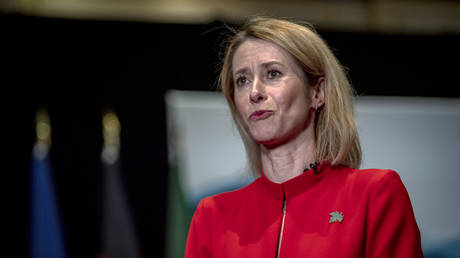
An “astonishing” claim that the Arabic-speaking nation of Sudan is ready to mend ties with Israel – officially a foe of the Arab world – has cost a Foreign Ministry spokesman his job, with Khartoum quickly dismissing his remarks.
Haidar Badawi Sadiq, who was a spokesman for Sudan’s Foreign Ministry until Wednesday, signaled earlier this week that his country is eager to ink a peace deal with the Jewish state. Both Israel and Sudan would reap benefits from such a milestone move without “without sacrificing our values and constants,” the diplomat told Sky News Arabia on Tuesday.
Referring to the United Arab Emirates (UAE), whose rulers recently announced the establishment of formal relations with Israel, Sadiq said the “bold and courageous move” charts the “right course” for Arab nations.
Israeli Prime Minister Benjamin Netanyahu was prompt to respond to the unorthodox remarks, tweeting his praise hours later. “Israel, Sudan and the entire region will benefit from the peace agreement and will be able – together – to build a better future for all peoples of the region,” his office wrote, adding that Tel Aviv would do whatever is necessary to “turn [the]vision into reality.”
However, Khartoum made it clear that it is miles away from becoming the fourth Arab state – after Egypt, Jordan, and now the UAE – to establish formal ties with Israel. On Wednesday, it emerged that Sadiq had been fired from his position. “I received a notice about dismissing me from my position,” he told Turkey’s Anadolu Agency.
He appealed to the country’s leadership, advising them to “respect your people and let them know what is going on in secret regarding relations with Israel.”
Earlier in the day, Sudan’s Foreign Ministry rescinded Sadiq’s comments, calling them “astonishing.” It did not discuss “in any way the matter of the relations between the Sudan and Israel, and… it did not instruct the official spokesman to make any statement about this matter,” read a statement delivered through the state news agency SUNA.
The historic UAE-Israel deal was hailed by the US, but sparked popular outrage in the Arab world and Palestine itself, where even discreet contacts with the Jewish state have long been considered a betrayal of the independence cause.
Officially, the agreement is said to put a halt to Israel’s annexation of the West Bank. However, Prime Minister Netanyahu ruled out any “change of plans,” implying that the land-grabbing action is unlikely to be reversed, and would only be delayed.
Members of the Arab League have refrained from dealing with or even recognizing Israel over its occupation of the West Bank and East Jerusalem, where an array of Muslim holy sites are located.
Outside the Arab world, Turkey has threatened to sever diplomatic ties with Abu Dhabi, whereas Iran called fixing ties with Israel “stupidity” and a “dagger in the backs of Muslims.”
Like this story? Share it with a friend!




